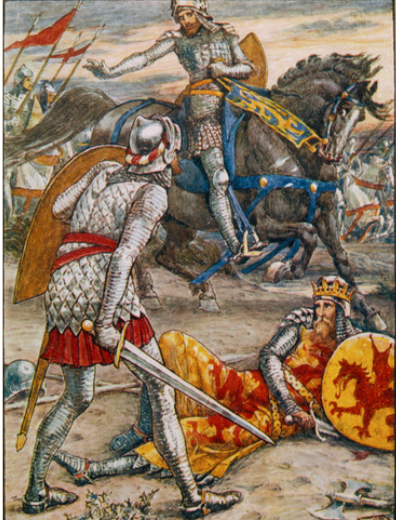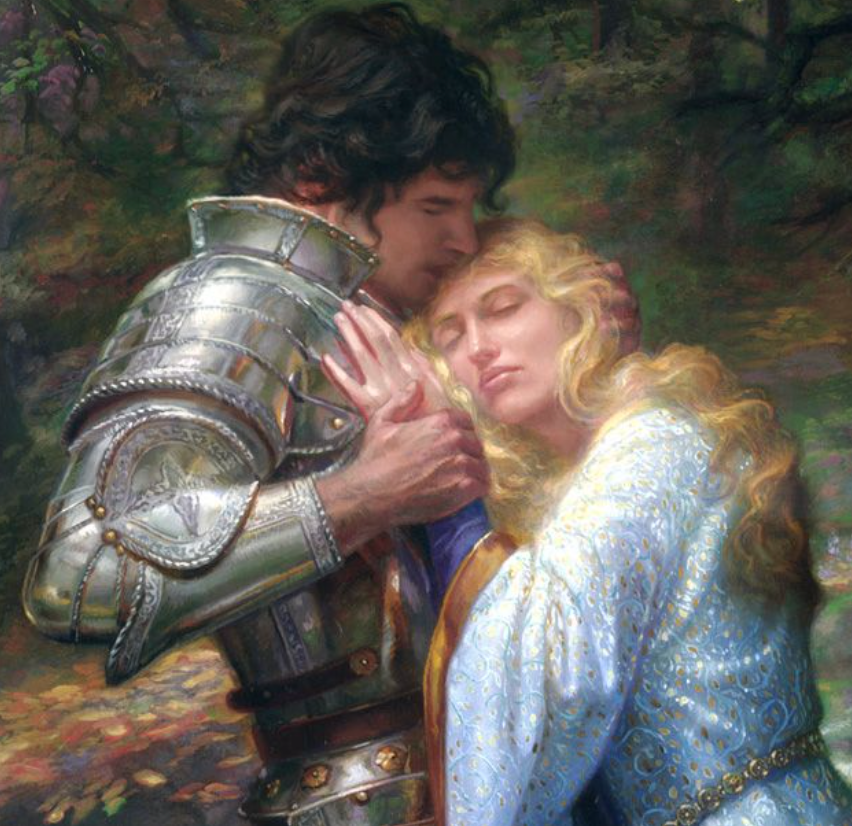Exploring Courtly Love in Sir Thomas Malory’s “The Fair Maid of Astolat”
By Emma Walsh
Courtly love is a predominant theme throughout much of Victorian Medievalist literature, especially in the stories of King Arthur and the Knights of the Round Table. Sir Thomas Malory’s The Fair Maid of Astolat, in particular, exemplifies and explores this concept, raising questions about the true nature of courtly love. At its foundation, courtly love centers on pain, struggle and suffering. It emphasizes humility and courtesy, but also adultery. It is a mutual love, where both parties are invested in the relationship, but the woman often controls the dynamic.
Lancelot, an example of an extremely dedicated lover, finds his identity centered on duty to his lady, utter submission, and obedience. In the beginning of the story, Arthur and his knights attend a joust but Lancelot remains behind. Guinevere informs him that his remaining home will raise suspicion about their affair, so Lancelot disguises himself and attends the joust, although he plans to fight against Arthur and the other Knights of the Round Table. While fighting, Lancelot gains an advantage over Sir Bors, Sir Lionel, and Sir Ector, a moment depicted in the photograph below, and “he might have slain them, but when he saw their visages his heart might not serve him thereto, but left them there” (135). In this instance, Lancelot finds himself caught between his loyalties. As a knight, he should fight for his own lord and he should see his battles to fruition. As a lover, however, he must go to battle because his lady tells him to, even if this means fighting against his so-called ‘kin’ and his lord, whom he has sworn fealty to. The result is that he encounters internal conflict and fails to gain honor at this joust, yet his attempts to win honor also cause strife between him and Guinevere; he does not succeed at being a knight or a lover.

Even when Lancelot works to gain Guinevere’s favor and honor her, their relationship is not without conflict. When Elaine, the Fair Maid of Astolat, falls in love with Lancelot and he wears her token into battle to help disguise himself, Guinevere becomes extremely jealous and turns on Lancelot, declaring “fie on him, recreant knight!… For wit you well I am right sorry an he shall have his life” (148). Guinevere even goes so far as to refuse to see or speak with Lancelot. Eventually, however, they reconcile and Guinevere asks Lancelot’s forgiveness for her unjust anger, a moment that is represented in the photograph below. Lancelot responds “this is not the first time… that ye have been displeased with me causeless. But, madam, ever I must suffer you, but what sorrow that I ensure, ye take no force” (155). He remains loyal to her, even through her irrational or unjust anger, and his feelings do not change.

Ultimately, through the relationship between Lancelot and Guinevere, many aspects of courtly love are demonstrated. Lancelot swears utter fealty to his lady, Guinevere is jealous when she believes Lancelot has entered into a relationship with someone else, and Lancelot remains loyal to Guinevere regardless of her actions. Even when Lancelot is presented with the opportunity to marry Elaine, who is beautiful, accomplished, and single (so arguably more suitable), he refuses to betray this sense of courtly love and instead returns to Guinevere. While appearing flawed to the modern reader, Lancelot and Guinevere’s romance is a near-flawless example of courtly love as would be expected during the medieval time that Thomas Malory seeks to embody in his writing.





